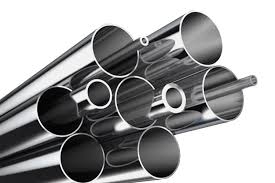Introduction to Stainless Steel 304 Pipes
Stainless Steel 304 Pipes are among the most widely used stainless steel products, known for their excellent corrosion resistance, durability, and versatility. These pipes are crucial in various industries due to their ability to withstand harsh environments and maintain structural integrity. This blog post delves into the chemical composition, key properties, benefits, and diverse applications of Stainless Steel 304 Pipes.
Chemical Composition and Properties
Chemical Composition
Stainless Steel 304 is an austenitic stainless steel alloy containing a high percentage of chromium and nickel. Typically, it comprises about 18% chromium and 8% nickel, which provide the alloy with its outstanding corrosion resistance and strength. The presence of these elements creates a protective layer on the surface, preventing rust and oxidation. Additionally, the alloy may include small amounts of carbon, manganese, silicon, and nitrogen, further enhancing its mechanical properties and stability.
Physical and Mechanical Properties
Stainless Steel 304 boasts impressive physical and mechanical properties that make it suitable for various demanding applications. It has a high tensile strength, excellent formability, and outstanding toughness. The alloy retains its strength and resilience even at cryogenic temperatures. Furthermore, Stainless Steel 304 is non-magnetic in the annealed condition and exhibits good weldability, allowing for the creation of complex structures and components.
Benefits of Stainless Steel 304 Pipes
The primary benefit of Stainless Steel 304 Pipes is their exceptional corrosion resistance, which makes them ideal for use in environments exposed to moisture and various chemicals. This property ensures longevity and reduces maintenance costs. Stainless Steel 304 is also highly durable and capable of withstanding high pressure and temperature variations, making it suitable for both indoor and outdoor applications. The aesthetic appeal of Stainless Steel 304, with its shiny and polished surface, adds to its attractiveness for architectural and decorative purposes. Additionally, the material's ease of fabrication and welding, combined with its hygienic properties, makes it a preferred choice in the food and beverage industry.
Applications of Stainless Steel 304 Pipes
Construction Industry
In the construction industry, SS 304 pipes are extensively used for their strength, durability, and resistance to environmental factors. They are employed in structural components, handrails, and cladding, providing both functional and aesthetic benefits. The material’s resistance to corrosion ensures that structures maintain their integrity and appearance over time, even when exposed to the elements.
Food and Beverage Industry
Stainless Steel 304 Pipes are crucial in the food and beverage industry due to their hygienic properties and resistance to corrosion. They are used in the processing, storage, and transportation of food products. The smooth surface of Stainless Steel 304 prevents the accumulation of bacteria and makes it easy to clean and sanitize, ensuring compliance with strict health and safety regulations.
Medical Equipment
The medical field relies on Stainless Steel 304 for various applications due to its biocompatibility and ease of sterilization. Stainless Steel 304 Pipes are used in the manufacturing of medical devices, surgical instruments, and hospital equipment. The material’s strength, durability, and resistance to corrosion make it suitable for creating reliable and safe medical tools and components.
Manufacturing and Quality Standards
The manufacturing of Stainless Steel 304 Pipes involves precise control over the alloy's composition and adherence to stringent quality standards. Processes such as cold drawing and annealing are used to enhance the pipes' mechanical properties and surface finish. Quality standards such as ASTM A312 and EN 10216-5 ensure that Stainless Steel 304 Pipes and Stainless Steel 304 Tubing meet the required specifications for various industrial applications. These standards cover aspects like chemical composition, mechanical properties, and dimensional accuracy, guaranteeing the production of high-quality, reliable pipes.
Conclusion
Stainless Steel 304 Pipes are a testament to the versatility and durability of stainless steel alloys. Their excellent corrosion resistance, mechanical properties, and aesthetic appeal make them suitable for a wide range of applications in construction, food processing, and medical equipment. By adhering to rigorous manufacturing processes and quality standards, Stainless Steel 304 Pipes continue to be a preferred choice for industries that demand high-performance materials.



